Lost kids: Victorian youth “stopped in their tracks” by Covid, now scared of war and the world.
Boys addicted to gaming, girls starving themselves and turning to psychics, children too scared to leave the house — what’s happened to our kids?
Victoria
Don't miss out on the headlines from Victoria. Followed categories will be added to My News.
Victoria is on the cusp of a “lost” generation, as kids struggle to recover from Covid lockdowns and are left reeling by world events, with some now too anxious to even leave their homes.
Crippled by fear, more kids than ever are refusing to go to school and youth mental illness rates are soaring, with nowhere near enough psychologists available to help them.
Australian Psychological Society chief Zena Burgess warned Victoria was facing “a lost generation”, if it didn’t act soon to help its struggling kids, as the head of a leading Melbourne school refusal centre, John Chellew, said “kids are struggling now that weren’t struggling before”.
There had been a noticeable spike in the severity of kids’ anxiety, with some students experiencing borderline agoraphobia, which was a fear of venturing outside, Mr Chellew said.
“(It’s) fear about leaving the house, not just going to school, but sometimes not even leaving their bedrooms,” he said.
Experts have told the Sunday Herald Sun young women are starving themselves and self-harming in order to feel a sense of control over their lives, while boys are seeking to lose themselves in video games, and want to quit study.
Both boys and girls are being diagnosed with anxiety, with many young people so uncertain about what the future holds, they see school, university, trades training or work as essentially pointless.
Leading Australian parenting and mental health expert Justin Coulson said young Victorians were “languishing” post Covid, while renowned adolescent psychologist Andrew Fuller described them as “so stymied by what is happening in the world . . . they’ve been stopped in their tracks through anxiety”.
Melbourne has been the most locked-down city in the world over the past two years, with its children spending the best part of nine months trapped inside their homes.
It comes as the latest Coroner’s Court of Victoria data reveals 23 Victorian children under the age of 18 took their own lives last year, while 78 between the ages of 18 and 24 suicided.
Tragically, this month, Mooroopna teen Sienna Ratila, aged just 13, died, after 10 previous suicide attempts.
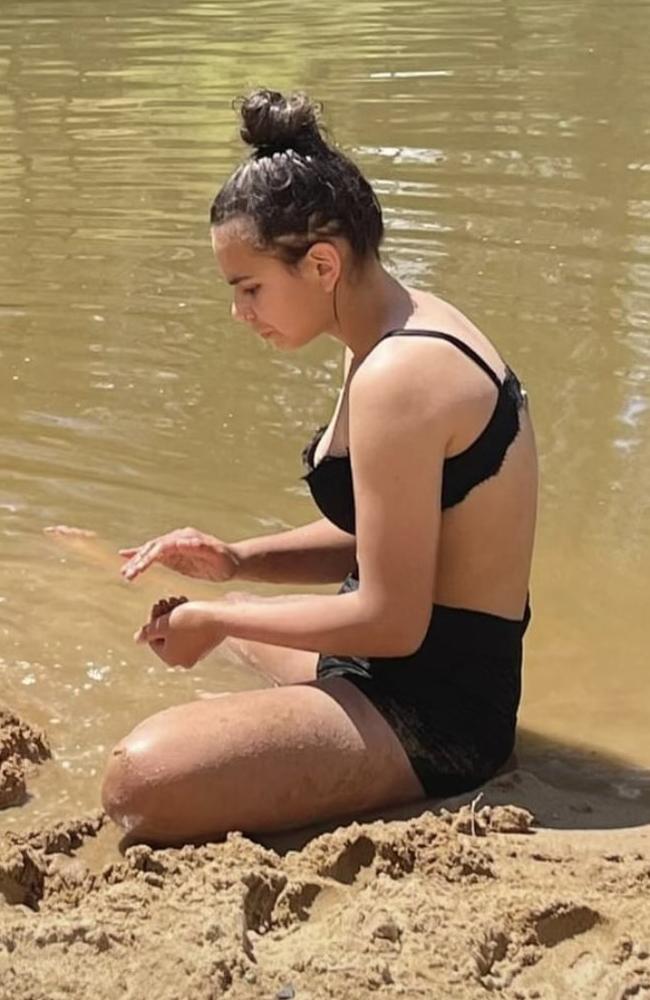
Her stepmum, Roxanne, said the Greater Shepparton Secondary College student — who had been diagnosed with ADHD and was farewelled with a public memorial last week — had been accessing local mental health support, but it wasn’t enough to stop her from taking her own life.
Siena’s depression had been “brushed off”, and the mental health system was “an absolute joke”, Roxanne said.
“When you’re coming to them as a parent, you’re coming to them for help. And we didn’t get that help,” she said.
Kids needed to be able to talk to others — their friends, if not parents — so they didn’t carry their mental anguish alone, she said.
Sienna’s aunties, Katie and Britt Mulcahy, said Siena had “fought this battle against mental illness for quite some time”.
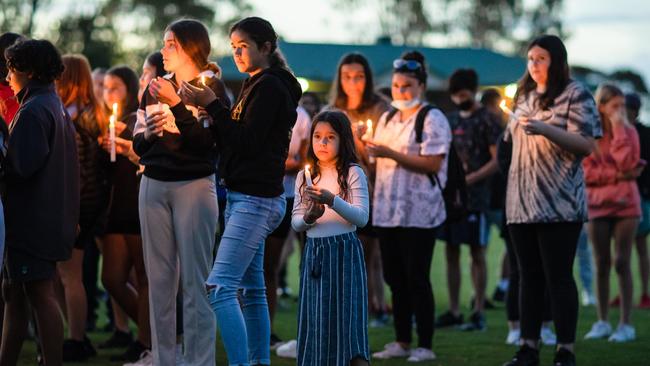
Dr Coulson said it was unprecedented to see one in four kids at a clinically diagnosable level for mental illness.
“(And) there is undoubtedly going to be a lag,” he said.
“They may not be presenting today but in three or six months’ time when they are still feeling anxious or they’re struggling to get their mojo back or they’re repeating a grade at school, we are going to be pointing back to these kinds of challenges with Covid,” he said.
Boys were missing a feeling of belonging and autonomy.
“A young man who is failing school or has just finished school and has no idea what he wants to do with his life, feels completely incompetent,” Dr Coulson said.
Some young people were feeling “the world’s going to end, coronavirus has destroyed any chances I had at a good education so what’s the point in trying”, he said.
It comes as girls reveal to psychologists they are anxious about the war in Ukraine and devastating floods in Australia’s north, coupled with feeling like they have lost connections and direction during the two years of Victoria’s lockdowns and Covid restrictions.
And boys increasingly feel apathetic and isolated.
Facing long waits for free, professional treatment through headspace — and typically unable to afford the gap fees of private psychologists — the confused teens are turning in droves to alternative healers, such as hypnotherapists, kinesiologists and even psychics for help.
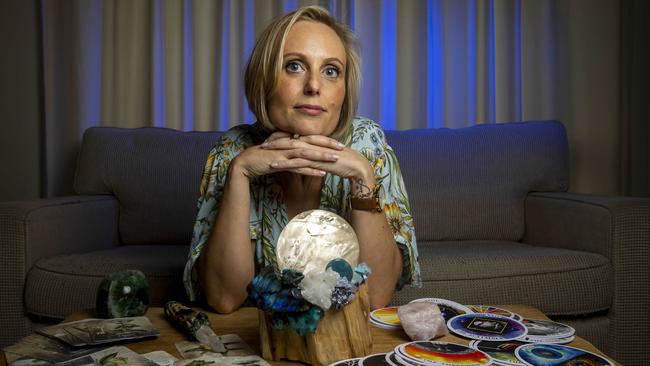
Many young people of faith are also turning to their churches for support and becoming more religious.
Dr Burgess said a staggering 88 per cent of psychologists had reported an increased demand in services, equalling the previous record increase set in June 2021.
And more than a quarter of psychologists had reported more children and young people seeking help.
However, with 38 per cent of psychologists now unable to take on new clients because they were so busy — up from 25 per cent mid last year and just two per cent before the pandemic — many kids were now at risk.
“We have the most understaffed mental health workforce in the country, meeting only 35 per cent of the federal government’s target. We need investment and strong leadership before it’s too late ... we risk a lost generation if we don’t act now,” Dr Burgess warned.
Mr Chellew, who runs School Refusal Clinic Bayside, said his referrals had doubled in the past 12 months.
Despite being full, his program was still taking on an average of four new clients a week “and have been all year”, he said.
The program now works with up to 24 kids a week refusing to go to school.
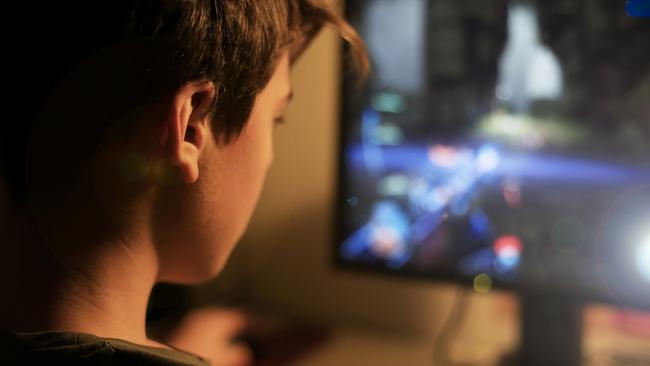
One Bayside clinic mum told said she had watched her teenage son go from loving school to refusing to attend face-to-face classes altogether, after months of remote learning during lockdowns caused the 14-year-old to develop ‘school anxiety’.
“This was a happy, outgoing, high performing regular child all through primary school. Never had any anxiety, never an issue,” she said.
“It only became a problem at the return to school after the 2020 lockdown and got progressively worse with each one.”
The worried mum, who sought out Mr Chellew’s expertise earlier this year, said parents experiencing similar issues with their children should try to be patient.
“Parents need to be able to keep pursuing, find help and don’t yell at them because they really are struggling,” she said.
Orygen executive director and Australian youth mental health authority Professor Patrick McGorry said while suicide rates had traditionally been higher in young men, “young women are catching up in a bad way”, with an increase in eating disorders and suicidal behaviour surging during the pandemic.
“It’s always been the case that male to female suicide rates in young people has been about four to one — four times worse in young men. But there has been a rise in the suicide rates in young women in the past decade and that has increased during the pandemic,” he said.
Mr Fuller said he was not surprised to see youth looking for guidance, support and meaning, beyond professional mental health help.
“If you’re drowning, anything that floats looks good,” he said.
During the pandemic he saw a rise in sleep and gut disturbances among young Victorians, as well as more people reporting pain and fatigue symptoms.
“It’s a heightened anxiety, quite profound and deep,” he said.
Job uncertainty was behind many young men feeling lost, Mr Fuller said.
“I think the pathways to becoming a grown-up are more obscure than ever, so young men who leave school earlier are uncertain about where their jobs are and those who go to university aren't any more secure. It’s very perplexing … so the counterbalance is going and playing Call of Duty (a first-person shooter video game) it feels safer,” he said.
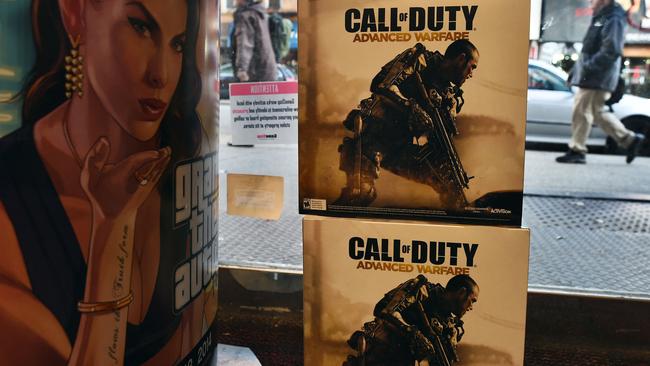
High-profile psychologist Michael Carr-Gregg said school refusal clinics were filled to the brim around the state with students who were not ready or willing to head back to the classroom.
Meanwhile, thousands of vulnerable young Victorians are being denied timely mental health care, with waiting times at headspace centres now stretching up to 60 days.
It’s understood more than 560 young people are waiting for appointments at headspace centres in Melbourne’s northwest alone, with the situation even worse in regional areas.
Headspace chief Jason Trethowan said more and more young people were presenting with complex mental health challenges.
“We know the impacts of Covid and efforts to contain its spread have disproportionately
impacted young people, who were separated from their support networks at an important time in their development,” he said.
“At the same time, many young Australians have also experienced natural disasters, including
floods and bushfire.
“Seeing and hearing about these events, as well as recent reports of the conflict overseas, may
cause some young people to feel anxious. So too might the continued spread of Covid.”
Young Melbourne woman Ellie, 20, who has suffered from an eating disorder for the past two-and-a-half years, said her anorexia spiralled during Covid, as she tried to maintain some sort of control over her life during repeated lockdowns.
With her weight plummeting 33kg, Ellie’s hair started to fall out, her nails became paper thin and she started to go into kidney failure.
“It was my way of gaining back control,” she said. “I wasn’t working that much, I wasn’t at
school, I wasn’t at uni, I couldn’t see my friends ... I was so lost.”
In 2020 — at the height of the pandemic — Ellie’s loved ones and social worker were so desperate to get her professional help, they begged for a consult at headspace.
However, when she was finally able to secure a place, the sessions were weeks apart and at times she had no one to speak to on her darkest days.
“I really needed someone at least fortnightly, not every five weeks … it honestly made me
feel worse. It made me feel unimportant,” Ellie said.
“I didn’t have a lot of money at the time and I was getting quoted upwards of $200 from
private psychologists. Wait times were upwards of eight weeks and a lot of them weren’t
taking new clients.”
With her family and friends desperate to find help, she agreed to try a different kind of
treatment in hypnotherapy.
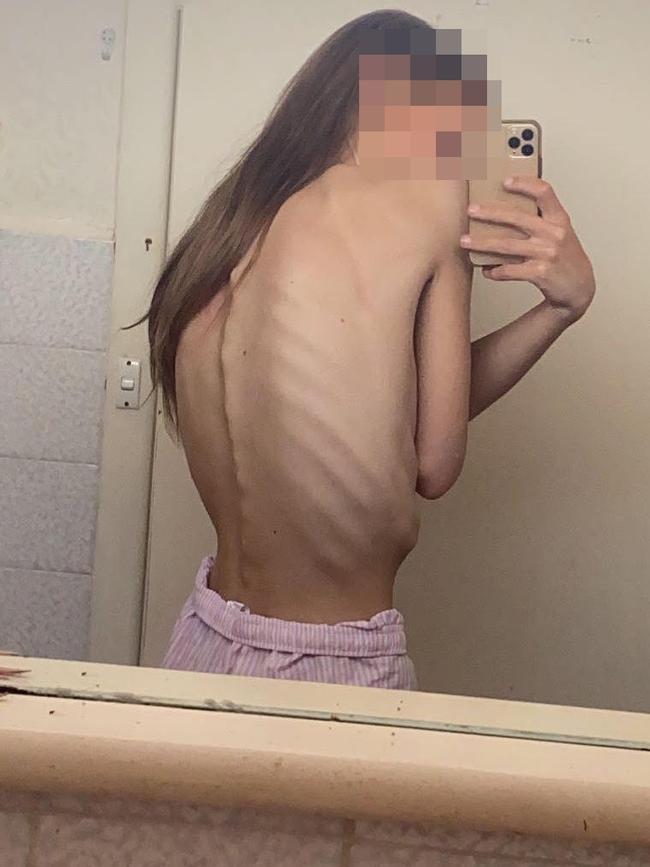
After six sessions at $180 a pop, Ellie said she was finally on the road to recovery.
Australian Hypnotherapists Association, author and mental health advocate Danielle Aitken
said hypnotherapists across the country were reporting an influx of young people like Ellie presenting with high levels of anxiety or depression; some with suicidal thoughts.
“The world’s a pretty scary place at the moment and they don’t have the tools to deal with what’s coming out them from every direction - on social media, what’s on the television,” she said.
“Children are confronted with things that perhaps they never were before with all the issues
with social media, the vividness with the games they play and the movies they watch.
“The world has changed and the news is constantly telling us that we’re not safe.”
“Covid was just the icing on the cake.”
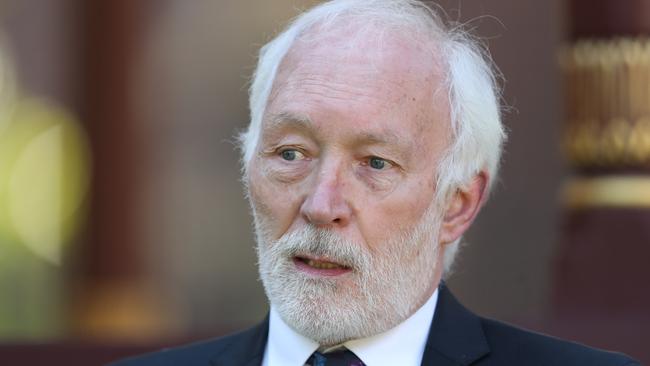
Melbourne psychic Julie Zdravkovska was also hit with a surge of inquiries from confused young people during the pandemic.
Many claimed to feel lost and frustrated due to their diminishing freedoms as a result of the
pandemic, she said.
“They had plans to either travel the world, start their course or a new job or were half way
through all these things when it was all put on hold,” she said.
“The fear and anxiety it caused was heartbreaking to witness . . . the majority were
feeling helpless, feeling like their dreams were all but shattered and a fear that life would
never be like it was before.”
Kathy Carmuciano — who has been a kinesiologist for 25 years and works mostly with children battling forms of anxiety — and fellow kinesiologist Megan MacIntyre, said more young people had approached them for help over the past two years than ever before.
“There have certainly been a lot more teenagers ... mainly girls and younger females but I’ve had a few more young men over the past two years dealing with uncertainty and anxiety,”
Ms Carmuciano said.
Kinesiology is a natural therapy promoting physical, emotional, mental and spiritual health, through gentle pressure applied to muscle points.
“I’ve had clients coming to me trying to get appointments for teenagers who have really gone
off the rails during Covid and there is nowhere to go,” she said, adding her colleagues
had reported similar experiences.
Father Nicholas Pearce, chaplain at the University of Melbourne, said some young people were looking to religion for answers and discovering a deeper faith.
“From fellow priests in a whole heap of different settings, there definitely hasn’t been a
reduction of people ... with young people in particular, they’ve actually come back stronger because they were really challenged and they found something deeper in their faith life,” he said.
But Mr Carr-Gregg, said he was not convinced all young people were having a tough time bouncing back from Covid, with some embracing the return to school and social life “with gusto”.
There was certainly another group of young people, however, who were “lost”.
WHERE TO GET HELP
If you or someone you know is at risk of suicide contact one of these national 24/7 crisis services immediately:
• Lifeline: 13 11 14 or lifeline.org.au
• Suicide Call Back Service: 1300 659 467 or suicidecallbackservice.org.au
• beyondblue: 1300 224 636 or beyondblue.org.au
If you are struggling with your mental health, you can also reach out to one of the following youth support services:
• headspace: visit headspace.org.au for eheadspace or more information
• Kids Helpline: 1800 55 1800 or kidshelpline.com.au
• ReachOut: reachout.com
• SANE Australia: 1800 187 263 or sane.org
Talk with a trusted adult, such as a parent, teacher, school counsellor or wellbeing officer.
You can also speak to your local general practitioner (GP), who will make a plan for
your recovery.
Originally published as Lost kids: Victorian youth “stopped in their tracks” by Covid, now scared of war and the world.




